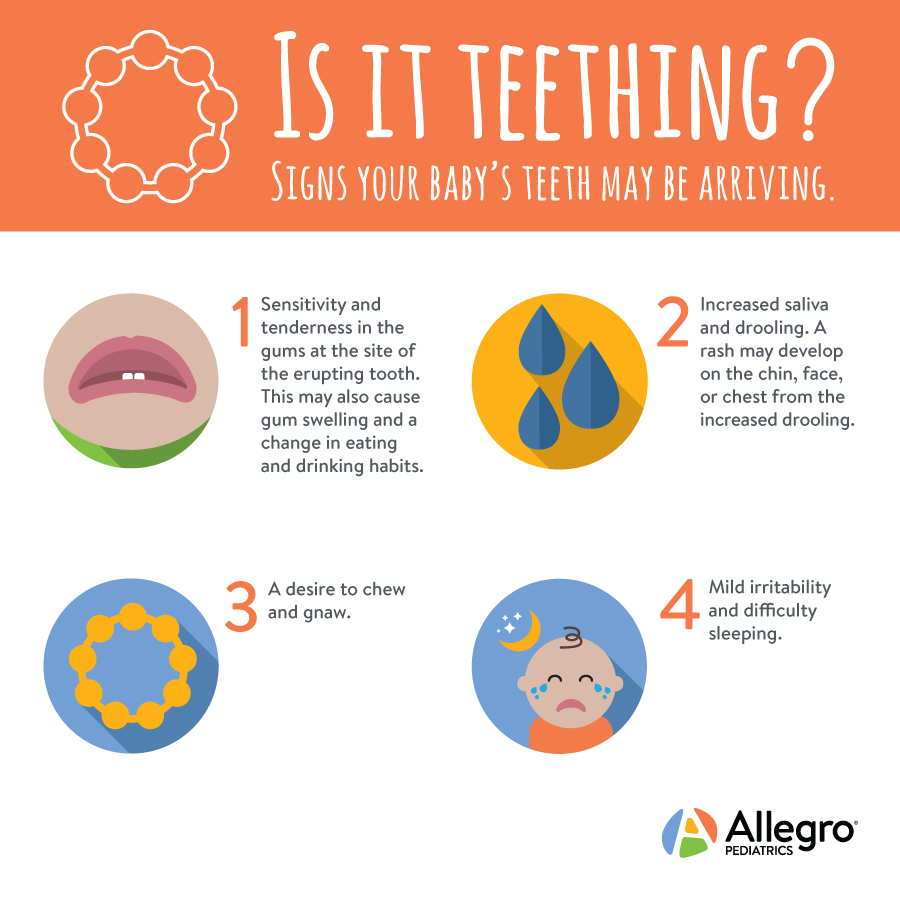
Baby Teething: A Comprehensive Guide for Parents
Teething is a significant milestone in a baby’s development, often accompanied by a range of symptoms that can be challenging for both the baby and their parents. Understanding the process of teething and its potential effects can help parents navigate this period with greater ease and comfort.
What is Teething?
Teething refers to the process of teeth erupting through the gums. This typically begins around 6 months of age, although it can vary from baby to baby. The first teeth to appear are usually the two lower front teeth, followed by the two upper front teeth. The remaining teeth gradually emerge over the next few years, with the last molars typically appearing around age 3.
Symptoms of Teething
The most common symptoms of teething include:
- Drooling: Increased saliva production can help soothe the gums and protect them from irritation.
- Gum pain: The pressure of the erupting teeth can cause discomfort and pain in the gums.
- Chewing: Babies may chew on objects to relieve gum pressure and provide stimulation.
- Irritability: Pain and discomfort can make babies fussy and irritable.
- Sleep disturbances: Teething can disrupt sleep patterns, leading to frequent awakenings and difficulty falling asleep.
- Low-grade fever: A slight elevation in body temperature is a common symptom of teething.
- Facial rash: Drooling can cause a rash around the baby’s mouth and chin.
Managing Teething Discomfort
While teething is a natural process, there are several measures parents can take to alleviate their baby’s discomfort:
- Gum massage: Gently massaging the baby’s gums with a clean finger or a soft toothbrush can provide relief.
- Cold objects: Offering the baby a cold teething ring or a chilled washcloth to chew on can numb the gums and reduce pain.
- Teething gels: Over-the-counter teething gels containing benzocaine or lidocaine can temporarily numb the gums. However, these gels should be used sparingly and only as directed by a healthcare professional.
- Pain relievers: Acetaminophen or ibuprofen can be used to reduce pain and fever. Always consult with a healthcare professional before giving any medications to a baby.
- Distraction: Engaging the baby in activities such as playing, singing, or reading can help distract them from the discomfort.
When to Seek Medical Attention
In most cases, teething is a normal process that does not require medical intervention. However, there are certain situations where it is important to seek medical attention:
- High fever: A fever over 101 degrees Fahrenheit (38.3 degrees Celsius) that persists for more than 24 hours.
- Persistent diarrhea or vomiting: Teething can cause mild digestive upset, but severe diarrhea or vomiting can indicate an underlying medical condition.
- Difficulty breathing: If the baby has difficulty breathing or shows signs of respiratory distress, seek medical attention immediately.
- Swollen or bleeding gums: Excessive swelling or bleeding of the gums can be a sign of infection.
- Refusal to eat or drink: If the baby refuses to eat or drink for more than 24 hours, it is important to seek medical evaluation.
Preventing Teething Complications
While teething is an unavoidable process, there are certain measures parents can take to prevent potential complications:
- Keep the baby’s mouth clean: Regularly wiping the baby’s gums and teeth with a clean cloth or a soft toothbrush can help prevent the buildup of bacteria and reduce the risk of infection.
- Avoid sugary foods and drinks: Sugary substances can contribute to tooth decay, which can be a problem even in young children.
- Encourage healthy eating habits: A balanced diet rich in fruits, vegetables, and whole grains can help strengthen the baby’s teeth and gums.
- Limit thumb sucking: Prolonged thumb sucking can lead to misalignment of the teeth.
Conclusion
Teething is a natural and often challenging phase in a baby’s development. By understanding the process and its potential effects, parents can provide comfort and support to their babies while minimizing the discomfort associated with teething. If any concerns arise, it is important to seek medical attention promptly to ensure the baby’s well-being. With proper care and attention, parents can help their babies navigate this milestone with ease and minimize any associated challenges.
